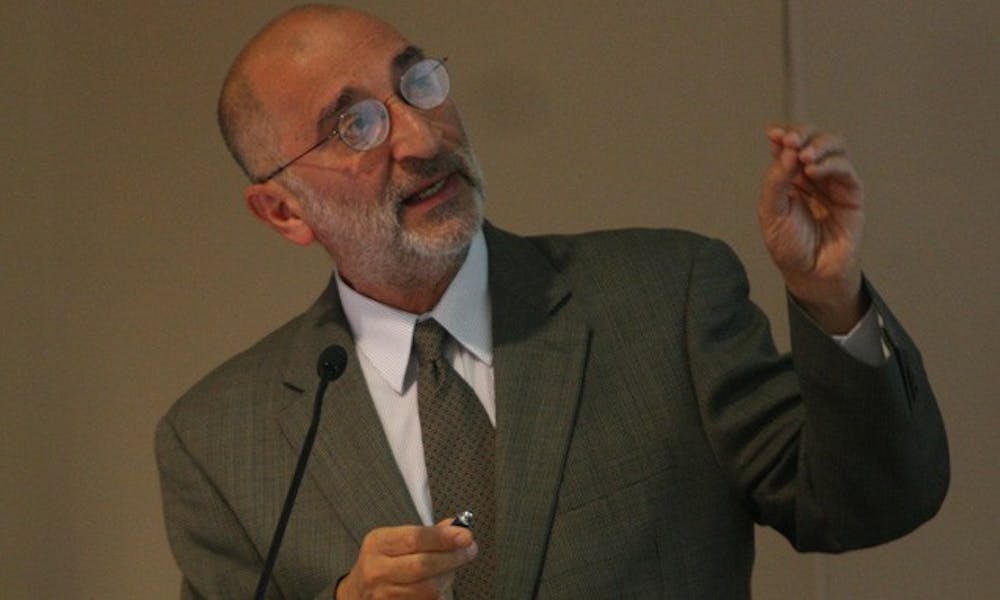Now often thought of as simply documents permitting travel, passports were once rare and vital components of a person’s national identity.
Anton Shammas, professor of modern Middle Eastern studies and comparative literature at the University of Michigan, delivered a speech titled “Palestine Mapped Out: A Passport Story” Tuesday night. He discussed the significance of his father’s Palestinian passport in forming his sense of identity and freedom to an audience of about 40 people.
Shammas, who was born in Israel in 1950, was educated at the University of Jerusalem before he became a noted journalist and essayist. This was his second time speaking at the University, said Lauren Braun, program coordinator for the Duke Islamic Studies.
“Shammas is communicating his father’s story,” Braun said. “I think the talk is important in light of the current state of Israeli-Palestinian affairs.”
He was introduced by Shai Ginsburg, assistant professor of Asian and Middle Eastern Studies. The two first met when Ginsburg was studying at the University of Michigan.
“Shammas was one of the most important Israeli intellectuals of the 80s,” Ginsburg said. “He was a leading figure in an emerging circle of Israeli scholars and artists.”
Shammas began the talk by showing a photograph of a wooden box that belonged to his mother and contained several important family heirlooms, including his father’s passport.
Much of the presentation was dedicated to his father’s British passport, which was issued in 1932 in Palestine—16 years before the Palestinian diaspora. He focused on the signatures of the Palestinian high commissioner, Sir Arthur Wauchope, and his father on the passport.
“Wauchope left a high-brow mark on my humble family history by leaving a mark on my father’s passport... an insignia of imperial power,” Shammas said. “The passport was a sort of pact between my father and Sir Arthur.”
Shammas recounted how his father, Hanna, was born in 1908 during the waning days of the Ottoman Empire. Hanna Shammas, a shoemaker and barber, attended a one-teacher school before graduating from the 4th grade.
Under the British Mandate for Palestine, which went into effect in 1923, the British government was given administrative power over Palestine in an attempt to designate a Jewish homeland in the Middle East without violating the rights of non-Jews. After the law was passed, Palestine ceased to be an independent state and Israeli citizens became classified by their ethnicity as either Arabs or Jews—rather than as Israeli citizens, Shammas said.
“This passport has no signification—it does not refer to a territory,” he said. “The passport was an embodiment of his right to walk from [his home village of] Fassuta to any other [place]. This was his box, this was his home.”
Through a series of maps centered on the city of Fassuta, Shammas narrated the course of the changing landscape that resulted from the British administration and the later Israeli occupation.
“The map of Jewish settlements superimposed on the original Palestinian villages created a new map of the land,” he said. “My Palestinian homeland turned overnight into a diaspora.”
Shammas concluded the talk by reflecting on the passport’s diminishing relevance in the present.
“Its once sturdy cohesive spine... is now battered, frayed and frail,” he said. “It was once an assertion of identity. We can still look at it, but we must eventually put the box away and move on.”
Get The Chronicle straight to your inbox
Signup for our weekly newsletter. Cancel at any time.

